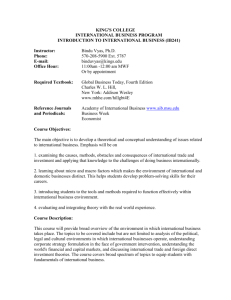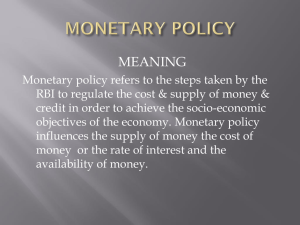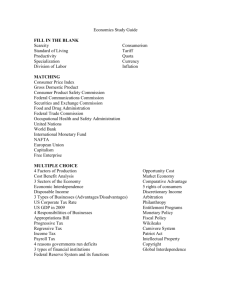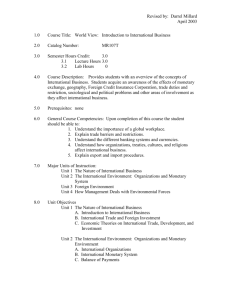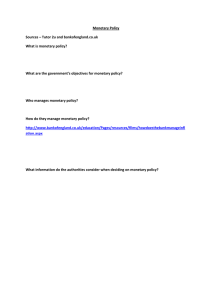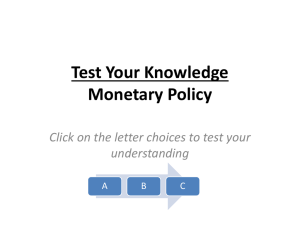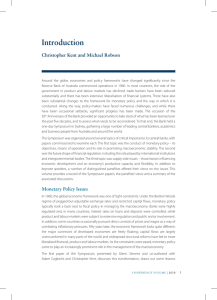Syllabus 4 - s3.amazonaws.com
advertisement
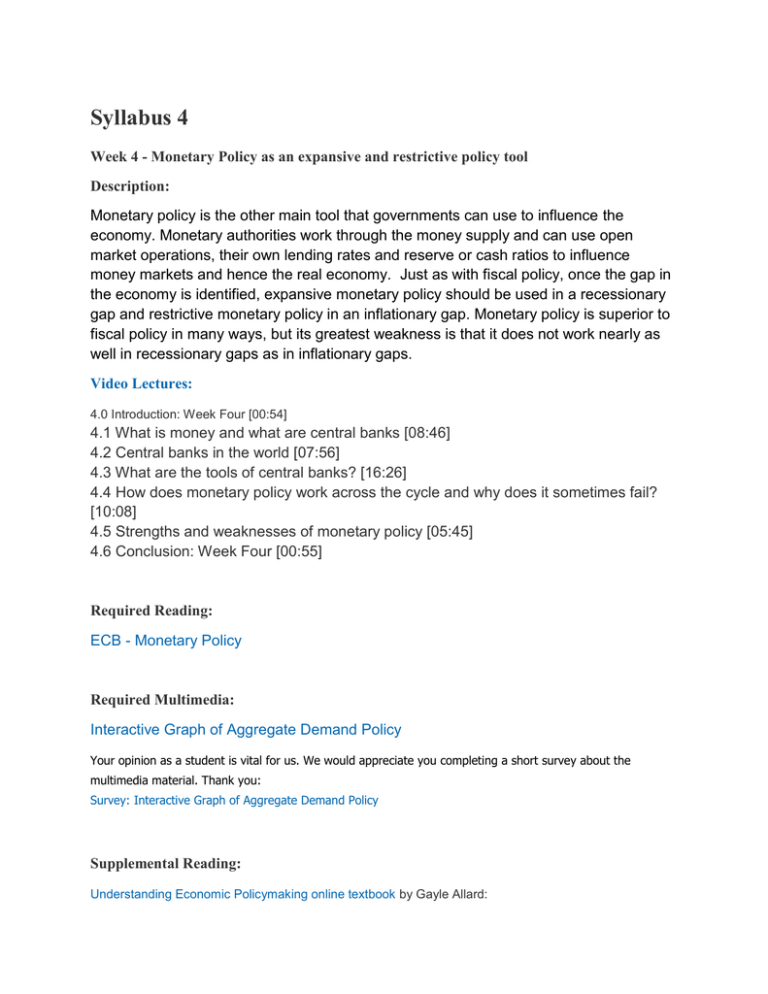
Syllabus 4 Week 4 - Monetary Policy as an expansive and restrictive policy tool Description: Monetary policy is the other main tool that governments can use to influence the economy. Monetary authorities work through the money supply and can use open market operations, their own lending rates and reserve or cash ratios to influence money markets and hence the real economy. Just as with fiscal policy, once the gap in the economy is identified, expansive monetary policy should be used in a recessionary gap and restrictive monetary policy in an inflationary gap. Monetary policy is superior to fiscal policy in many ways, but its greatest weakness is that it does not work nearly as well in recessionary gaps as in inflationary gaps. Video Lectures: 4.0 Introduction: Week Four [00:54] 4.1 What is money and what are central banks [08:46] 4.2 Central banks in the world [07:56] 4.3 What are the tools of central banks? [16:26] 4.4 How does monetary policy work across the cycle and why does it sometimes fail? [10:08] 4.5 Strengths and weaknesses of monetary policy [05:45] 4.6 Conclusion: Week Four [00:55] Required Reading: ECB - Monetary Policy Required Multimedia: Interactive Graph of Aggregate Demand Policy Your opinion as a student is vital for us. We would appreciate you completing a short survey about the multimedia material. Thank you: Survey: Interactive Graph of Aggregate Demand Policy Supplemental Reading: Understanding Economic Policymaking online textbook by Gayle Allard: - Chapter 5– Monetary Policy We will be using my new policy game for iPhone and Android, Econ Policy 101, to test the results of different economic policies on an economy and observe their strengths and weaknesses (and have a little fun as well!). We'll discuss our findings each week on the course forum. The game is available at the App Store and Google Play. Questions for consideration: Why is monetary policy often so much better than fiscal policy? Why does it sometimes fail? Links to pages referenced in videos: Template Video 4.4 Video 4.4 Development and Globalization Facts and Figures 2012
